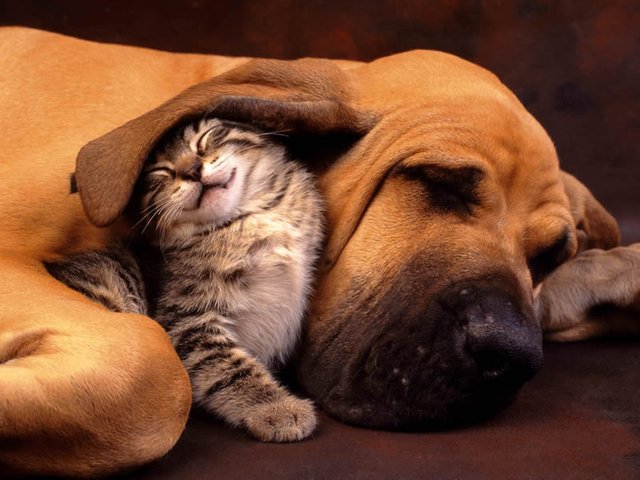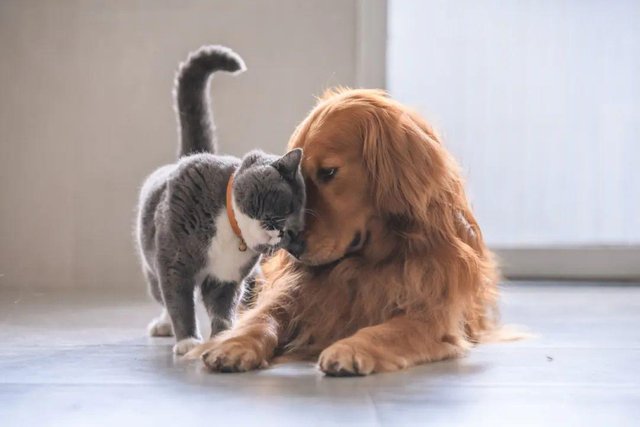Cat PK dog, who is smarter?

Both are domesticated, but which one is smarter?
Dog and cat owners make a lot of assumptions about their intelligence. Of course, we all like to imagine that our fur kids are the smartest animals ever because they can fetch or pounce on a ball. So can we settle this long-standing debate? Which species is smarter: the dog or the cat?
As it turns out, the answer is not as straightforward as pet lovers had hoped.
"Dog cognition researchers don't study 'intelligence' per se; we study different aspects of cognition," Alexandra Horowitz, a senior researcher specializing in dog cognition at Barnard College in New York and author of "Inside the Dog," told Live Science in an email. Rather, it's what's inside the dog: what the dog sees, smells and knows."
Indeed, Horowitz is puzzled by the human habit of comparing intelligence across species. In short, cats are smart at what they need to do, and dogs are smart at what they do, and it makes no sense at all to talk about the relative 'smartness' of species," she says. "Brian Hale, a professor of human evolution at Duke University, agrees. "Discussing whether dogs are smarter than cats is like asking whether a hammer works better than a screwdriver - it depends entirely on what it was designed to do," he told Live Science in an email.
That's not to say that animal behavior researchers haven't tried to measure the "intelligence" of dogs and cats - or, more accurately, the cognitive abilities beyond what's needed to sustain life.

Kristyn Vitale, an assistant professor of animal health and behavior at Maine Unity College, said animal intelligence is generally divided into three broad areas: problem-solving ability, concept formation (the ability to form general concepts from specific experiences) and social intelligence.
Vitale, who focuses on cats, is currently focusing on analyzing the inner world of cats around their social intelligence. She told Live Science in an email that cats are often stereotyped as indifferent and uninterested in humans, but it is actually cats that exhibit higher-order social intelligence, which is often at the same level as dogs."
For example, studies have shown that cats can distinguish between words that sound similar to their names, and they have been found to prefer human interaction to food, toys and smells. Human attention makes a difference for cats: a study published in 2019 in the journal Behavioral Processes found that when a person pays attention to a cat, the cat responds by spending more time with that person.
In one of the few studies directly comparing cats and dogs, the researchers found no significant difference in the species' ability to use cues pointed out by humans to find hidden food. However, the researchers noted that "cats lack the behavioral response to being drawn to attention compared to dogs." (Pet owners who watch a dog begging at its food bowl while the cat walks away are fully aware of what the researchers observed.)
Then again, a common notion is that brain size determines relative intelligence, and if this is the reason, then dogs would seem to have the advantage.

Harley said he and University of Arizona anthropologist Evan McLean recruited more than 50 researchers around the world to apply the test they invented in 550 animal species, including "birds, apes, monkeys, dogs, lemurs and elephants. The idea was to test their cognitive traits and self-control, or what the researchers call "inhibitory control." Their test was published in the 2014 issue of the Proceedings of the National Academy of Sciences about the animal section of the famous 1972 Stanford University study, in which children ages 3 to 5 were tested on their ability to delay going for a marshmallow.
This cross-species study showed that "the larger the brains of the animals, the greater the self-control they showed in our animal marshmallow test," Hare said. The ability to exercise self-control is one of the hallmarks of higher cognitive function.
But there's a catch. Cats were not included in the test, and although we can speculate about how they might perform based on their brain size, it has not actually been verified. Another thing to keep in mind when doing this type of intelligence assessment is that we may treat dogs and cats differently. For example, dogs are often well socialized, attending training, going for rides in the car, and going to the dog park. Cat owners, on the other hand, give their cats fewer opportunities for these types of socialization and training.
So, ultimately, who is the winner? Well it may be the social intelligence that appreciates your pet's special intelligence, especially the social intelligence that makes them attentive companions.